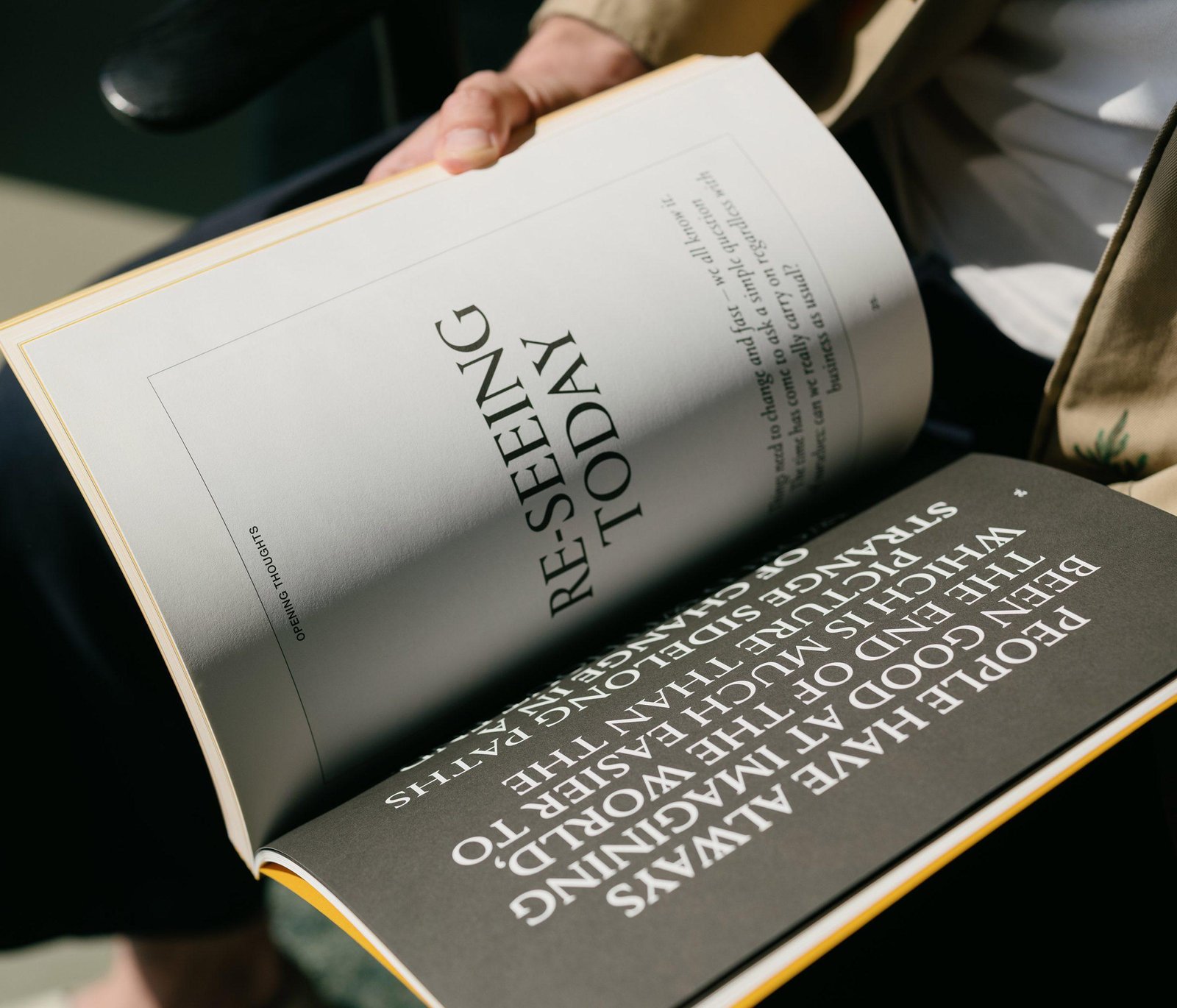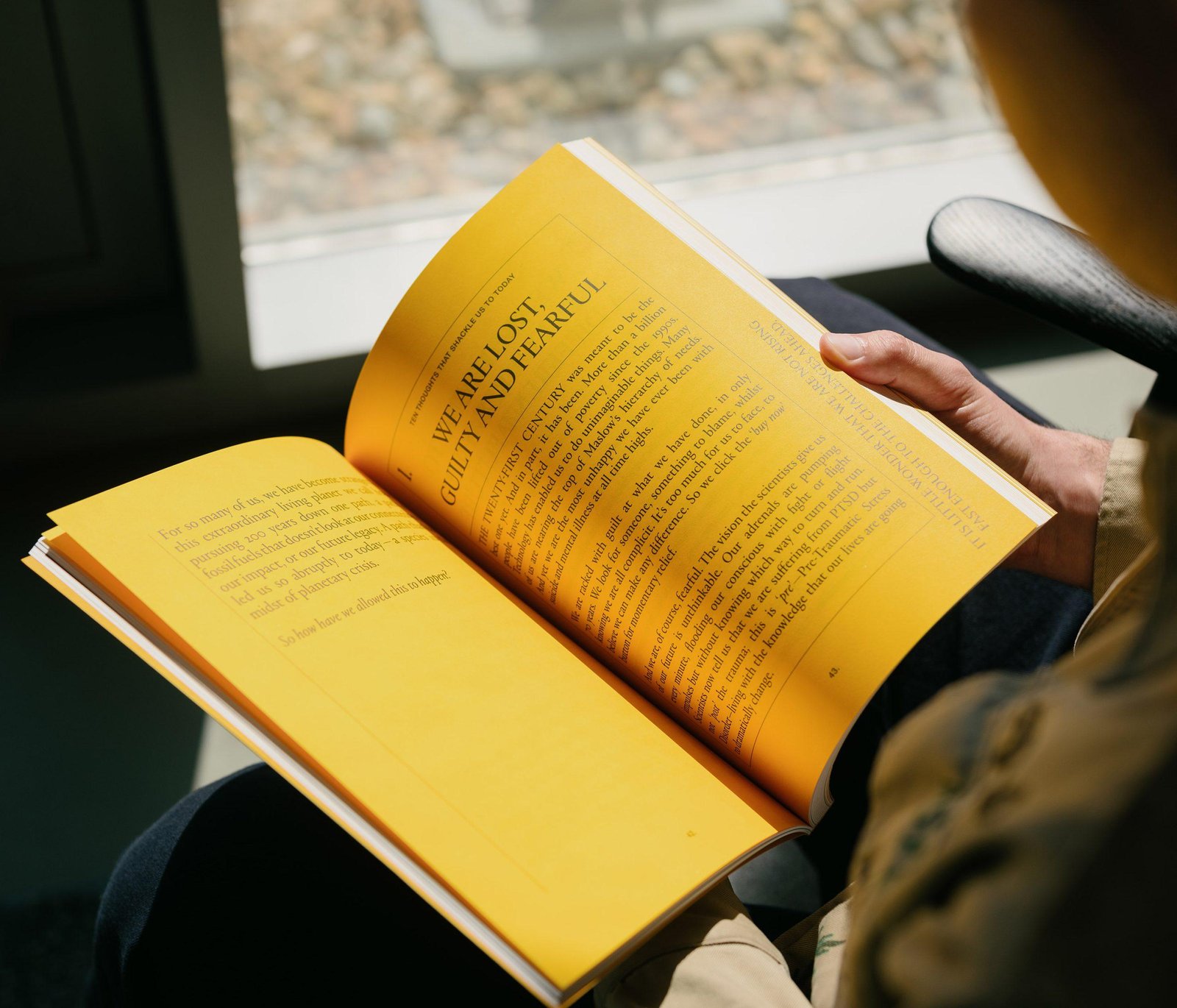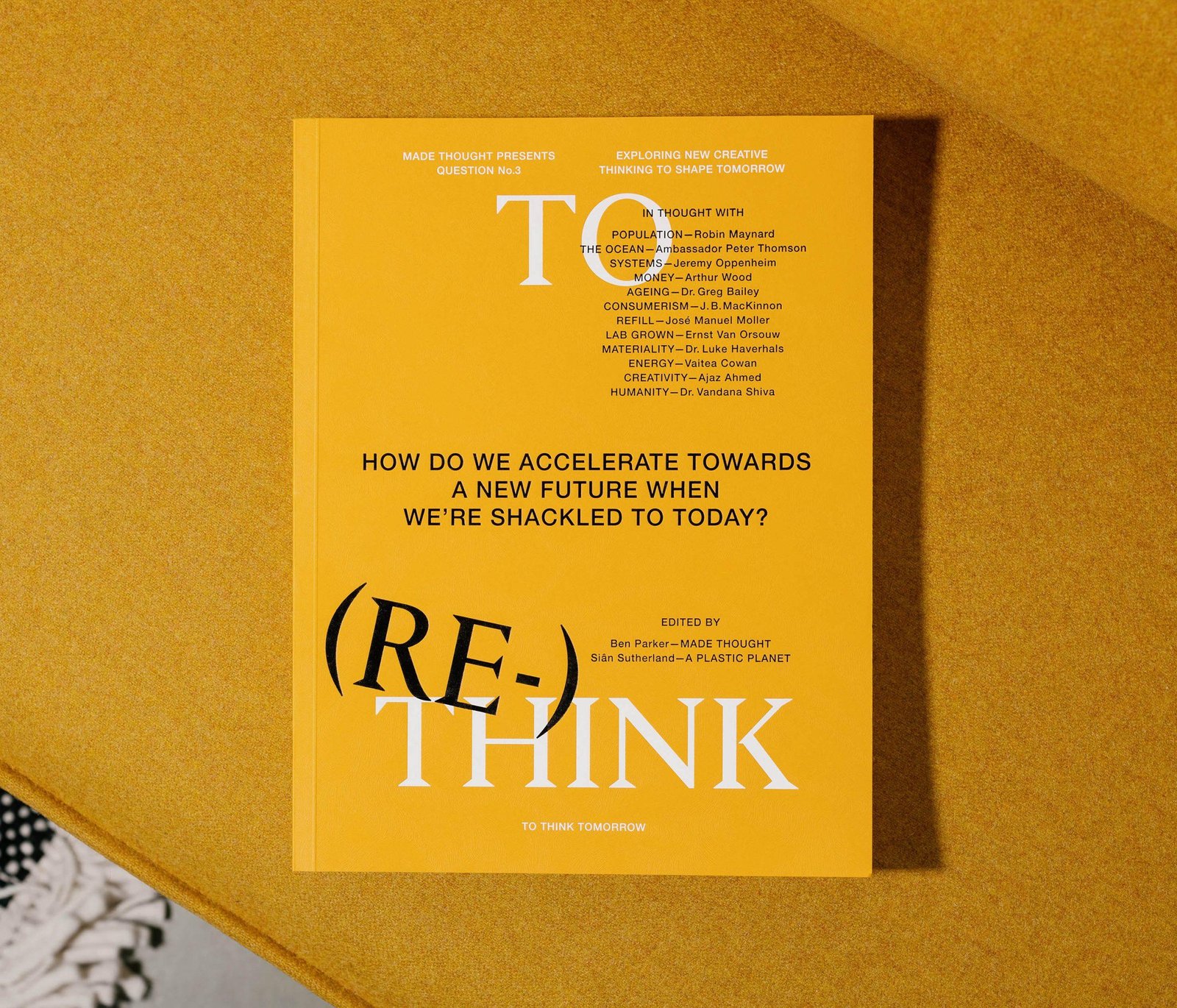World’s Leading Futurists Interviewed For New Journal


CREATIVE agency Made Thought has today published To Think Tomorrow – a compendium of 12 revealing interviews with some of the world’s pre-eminent futurists. Legendary ecologist Dr Vandana Shiva and the UN Secretary-General’s Special Envoy for the Ocean Peter Thomson are among those interviewed for the third instalment of the To Think journal series.
Made Thought wants the journal to inspire the world to think broader and deeper in the search for answers to humankind’s most pressing challenges. The journal also features the insights of financier Arthur Wood, materials scientist Dr Luke Haverhals, and population campaigner Robin Maynard. To Think Tomorrow takes readers on a journey taking in the profound issues facing the world – from the unequal distribution of global capital to how people can live truly healthy lives in old age.
Each interview captures the essence of a problem that threatens humankind’s future – and then offers practical, ingenious solutions as to how the problem might be tackled. To Think Tomorrow sees media entrepreneur Ajaz Ahmed offer powerful solutions as to how global business leaders can rediscover their innate creativity in tackling the problems they face.
While impact investor Arthur Wood provides answers as to how we can a smash a status quo rooted in the inequitable distribution of human capital. Dr Greg Bailey provides a new solution as to how human beings can reverse the onset of ageing and radically increase the number of years they remain healthy for. Ernst van Ersouw – CEO of Roslin Technologies – suggests the world needs a fundamental reset in its understanding of protein to end world hunger.

To Think Tomorrow sees Canadian journalist and author J. B. MacKinnon offer his prognosis for how we can wean ourselves off a diet of perpetual consumerism which has left us bloated and unhappy. Earthshot Prize winner Vaitea Cowan – an entrepreneur in the business of green hydrogen – tells of her vision of a world beyond the dirty reality of fossil fuels. Jeremy Oppenheim – a systems level change-maker uses his interview in To Think to offer a cri de Coeur against incrementalism in favour of full-on revolutionary change.
The journal too features the insights of José Manuel Moller – a Chilean entrepreneur aiming to use the power of refill to fundamentally reduce the cost of being poor for millions of people across South America. Materials scientist Dr Luke Haverhals offers a powerful prescription as to how humankind can start to make materials that work with nature rather than against it. While the UN Secretary-General’s Special Envoy for the Ocean Ambassador Peter Thomson issues a passionate call for a fundamental re-set in our collective relationship with the ocean.
And population campaigner Robin Maynard tells a compelling story of a life dedicated to sharing the truth about the stark realities of ongoing population growth. And finally, ecologist and international scholar Dr Vandana Shiva tells of a world that needn’t be blighted by the pernicious spectre of hunger.
Ben Parker, co-editor of To Think and creative director of design agency Made Thought, said: “As a collective we scrabble around to meet the micro challenges of the present. These crises drain us of our intellectual energy. They deprive us of our purest creativity.
“We defer dealing with the long-term challenges because we do not have the courage or the time to begin to tackle them. To Think Tomorrow is our contribution to a world in which these challenges can be tackled head on.


“But there is hope. Human history has been defined by people who see the world differently. Across science, culture, politics, the arts and business, those prepared to stand apart and actively challenge the status quo have redefined convention and pulled the world forwards. To Think Tomorrow sees these people tell their story.”
Sian Sutherland, co-editor of To Think and co-founder of A Plastic Planet said: “By 2025 there will be 160 million designers and creative decision-makers in the world. We are relying on these minds to design a future for the world that is radically greener, fairer, and more peaceful than the one we currently inhabit.
“Each thoughtful conversation has helped paint a new picture for us to strive towards; reinforcing how this coming decade has to be the shift; a new era of design, entrepreneurship, business pivoting and joined-up problem solving. All twelve interviews coalesce to illustrate the landscape of a new future that we want to be part of, setting out a new vision of tomorrow.
“We hope the world enjoys digesting To Think Tomorrow as much as we enjoyed putting it together.”
Further information – https://www.madethought.com/to-think

